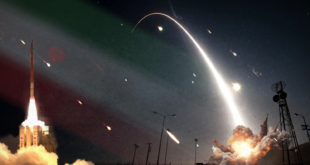
The storming of the U.S. Capitol in early January will serve as inspiration for far-right violent extremists abroad, including in Europe and Asia.
2021 could be a banner year for growing ties between far-right violent extremists globally, especially if COVID restrictions lift and travel resumes.
Important differences exist between far-right and white supremacist groups in the U.S. and Europe, but growing synergies could change the dynamics.
The Capitol insurrection could potentially divide elements of the far-right, as political leaders abroad will be pressed to publicly denounce violence.
Most experts agree that the storming of the U.S. Capitol in early January 2021 will serve as inspiration for domestic violent extremists in the United States. But how was this event viewed by far-right extremists abroad, including in Europe? European far-right leaders were watching the Capitol insurrection closely and based on propaganda circulating online, are attempting to feed off the energy and momentum of what happened in Washington D.C. to recruit and fundraise for their own movement. In late August 2020, hundreds of far-right activists in Berlin attempted, but failed, to overrun police and storm the Reichstag (German parliament). While that attempt in Germany was a failure, the successful storming of the Capitol in the United States appears to have provided a boost to a range of far-right groups in Europe, with reports they consider it a successful first attempt, to be improved upon in the future. In Europe, including in Germany, the QAnon conspiracy has gained further ground and is likely to infuse new recruits into far-right movements, further complicating the challenge for law enforcement and security services. QAnon in Germany has circulated disinformation about election fraud in the United States, which was amplified online by a local chapter of Alternative for Germany, a far-right political party.
Worldwide, far-right groups are expressing solidarity with the American insurrectionists and shifting the far-right ideological and operational center towards the United States from Europe. 2021 could be a banner year for growing ties between far-right extremists globally, including white supremacists and neo-Nazis from North America to Europe, and from South Africa to the Asia-Pacific. Just recently, in what came as a surprise to many, a 16 year-old boy in Singapore was detained under Singapore’s Internal Security Act for allegations that he was planning terrorist attacks against Muslims at two separate mosques. The teenager, a Christian of Indian ethnicity, was apparently motivated by the March 2019 Christchurch attack in New Zealand. If COVID-19 restrictions are eased by later this year – as many public health authorities predict with the further distribution of effective vaccines – far-right extremists will seek to take advantage, traveling abroad to network in person and forge stronger bonds. Public gatherings will offer opportunities for extremists to mingle and connect, vet each other in person, and attend concerts, rallies, and sporting events where they build rapport and swap ideas and, critically, raise funds.
There are still important differences between aspects of the far-right in the United States and elements in Europe, although there appear to be growing synergies. Martin Sellner, the leading figure in Europe’s Generation Identity movement and married to a prominent American white nationalist (Brittany Pettibone), spoke openly about the events of January 6 at the Capitol. He indicated that Europeans would seek to harness the momentum resulting from the insurrection. The Proud Boys, one of the main agitators in the insurrection, have attempted to reach out and express solidarity with other far-right groups operating abroad, including in Germany, the United Kingdom, Poland, France, and Turkey. Matthew Heimbach, a white nationalist who founded the Traditionalist Worker Party and helped organize the 2017 ‘Unite the Right’ rally in Charlottesville, Virginia, was a leading proponent of forging closer ties between the American and European far-right. Heimbach, who now claims to have renounced white nationalism, spent years networking with groups in Czech Republic, Germany, and Greece and was linked to the Russian Imperial Movement (RIM), an organization designated by the U.S. Department of State as a Specially Designated Global Terrorist (SDGT) entity in 2020.
Far-right politicians in Europe, including Matteo Salvini (Lega Nord), Giorgia Meloni (Fratelli d’Italia), and Marine Le Pen (Rassemblement National) each supported former U.S. President Donald Trump when he continued to make baseless claims about electoral fraud; yet, they attempted to distance themselves rhetorically from the violence that followed. In some ways, the open display of violence at the Capitol and the fact that several people were killed in the ensuing chaos could be a wake-up call for far-right politicians in Europe, a stark reminder of the consequences of stoking nativist rage. For a generation sometimes distanced from its legacy in Europe, this may be key. As a result, some far-right politicians in Europe could look to consolidate gains by pulling individuals and groups at the fringes of the far-right closer toward the political mainstream. In that sense, the Capitol insurrection could split the European far-right, as parliamentary movements and street movements diverge. Nonetheless, a more politically ‘mainstream’ far-right movement would in itself be destructive in the long run, opening opportunities to institutionalize their ideology. If this divergence occurs and hardliners are motivated to perpetrate violence, another beneficiary would be that most extreme fringes of the European far-right, most notably white supremacy extremists and neo-Nazis, networks which would attempt to absorb the most hardcore elements of a far-right in flux.
 Eurasia Press & News
Eurasia Press & News



